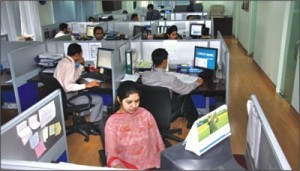Mamun Rashid
 A green bank is a bank that promotes environmental and social responsibility but operates as a traditional community bank and provides excellent services to investors and clients. Its progressive approach to the community and the earth sets it apart from other banks.
A green bank is a bank that promotes environmental and social responsibility but operates as a traditional community bank and provides excellent services to investors and clients. Its progressive approach to the community and the earth sets it apart from other banks.
It is more about focusing on ‘mother planet and its sustainability’, shifting from a traditional approach on ‘profit’ or even ‘people’. Green banking is not just another corporate social responsibility (CSR) activity.
As more consumers look at whether their lifestyle is sustainable, different areas of their lives come under scrutiny. Green banking is a general term, which can cover a multitude of areas from a bank being environmentally friendly to how and also where their money is invested.
Green banking, which considers all the social and environmental factors, is also called ‘ethical banking’. Ethical banks started with the aim of protecting the environment. These banks are like normal banks that aim to protect the environment and are controlled by the same authorities.
Green banking, compared to normal banking, gives more weight to environmental factors. Its aim is to provide good environmental and social business practices. It checks all the factors before considering a loan — whether the project is environment-friendly and has any implications for future. One would be awarded a loan only when all environmental safety standards are followed.
Basically, ethical banking avoids as much as paper work as possible — from go-green credit cards and go-green mortgages to all transactions done online.
It creates awareness around business people about environmental and social responsibility, enabling them to adopt environment friendly business practices, and follows environmental standards for lending. When a person is awarded a loan, the interest is less than normal banks because ethical banks give more importance to environment-friendly factors — they do not operate with high interest rates.
Overall, green banking is a good way for people to be aware of global warming. Each businessman will contribute to the environment and make this earth a better place.
In March 2009, Congressman Chris Van Hollen introduced a Green Bank Act with the aim of establishing a green bank under the ownership of the US government. Its objective was to offer financial support to efforts to increase efficient energy usage, and reduce carbon emissions and environmental pollution resulting from energy creation.
In addition, it is envisaged that this institution is going to work towards reducing the country’s dependence on foreign energy sources, fighting climate change and creating additional jobs through the provision of healthier energy generation facilities.
The Congressman proposed establishing the green bank with an initial capital of $10 billion to be raised by a US Treasury ‘Green Bonds’ issue, with a maximum of $50 billion in bonds outstanding at any one time.
Although some analysts have criticised the idea of financing this Green Bank through additional bond issues during the current financial crisis, the proposal has been broadly welcomed by a group of investors, energy industry experts and manufacturers, under the banner — Coalition for Green Bank. Supporters of the scheme argue that the country’s present economic difficulties provide additional reasons for this initiative, since the prospects of private capital investment to create new energy capacity have greatly diminished.
Sustainable investment, also known as socially responsible investment (SRI), has grown enormously in the past decade.
Bank Technology News has recently given Citi top honours in its first ranking of ‘America’s Greenest Banks’. The award highlighted the accomplishments of Citi’s Sustainable Operations and Technology programme, which includes dozens of initiatives aimed at shrinking environmental footprints and controlling costs.
In just one example, Citi updated computer hardware across the 1,000+ Citibank branches in North America, reducing energy costs by 15 percent a year, while improving the speed with which it services customers.
The Financial Times of London announced the Sustainable Banking Awards last Thursday. UK’s Cooperative Bank won the ‘Sustainable Bank of the Year’ award and only HSBC, among large global banks, was a runner-up in any category.
The good news is, BRAC Bank Ltd from Bangladesh became the regional winner for ‘Asian Emerging Markets Sustainable Bank of the Year’.
As mentioned, there is a growing awareness among banks and financial institutions to protect the environment and thereby, save ‘mother planet’. Big banks are committing big funds on a sustainable basis in responsible banking. They are shifting forward from ‘profit’ to ‘people’ and now more importantly, to create a better future for all. The sooner this philosophy of ‘green banking’ is embraced, the better it is for all.
The writer is a banker and economic analyst. He can be reached at mamun1960@gmail.com


